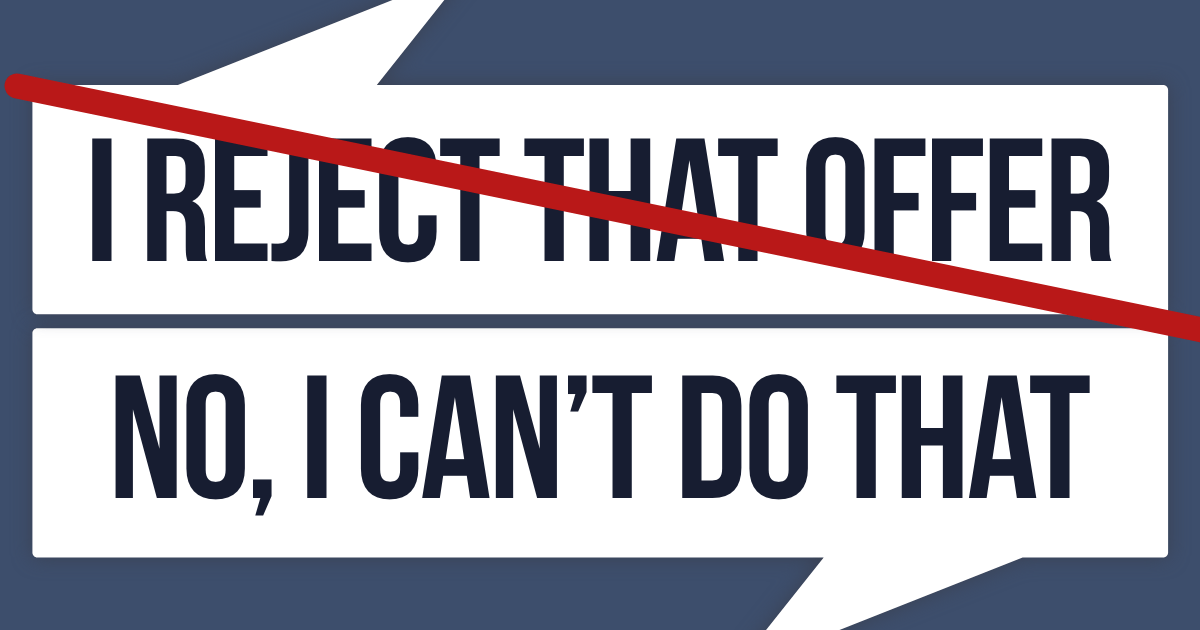Avoid Negotiation Terminology
Even simple words like “accepting” and “rejecting” increase aggressive tendencies.

Overview
Negotiation has a bad reputation in Western cultures. It seems combative — only one winner can emerge.
This philosophy influenced negotiation styles. Rather than look for mutual gains, people fixate on defending and reinforcing their position — which weakens the final deal for both parties (Fisher, Ury, & Patton, 2011).
To earn the best deal, you need a cooperative mindset. How? Choose your words carefully.
Avoid words that frame the discussion as a negotiation. Even simple words like “accepting” and “rejecting” increase aggressive tendencies (Larrick & Blount, 1997).
Use cooperative words (e.g., collaborate, brainstorm, work together). Even 1st person pronouns (e.g., us, we, our) boost cooperation (Perdue, Dovidio, Gurtman, & Tyler, 1990).
- Larrick, R. P., & Blount, S. (1997). The claiming effect: Why players are more generous in social dilemmas than in ultimatum games. Journal of Personality and Social Psychology, 72(4), 810.
- Perdue, C. W., Dovidio, J. F., Gurtman, M. B., & Tyler, R. B. (1990). Us and them: Social categorization and the process of intergroup bias. Journal of personality and social psychology, 59(3), 475.
- Fisher, R., Ury, W. L., & Patton, B. (2011). Getting to yes: Negotiating agreement without giving in. Penguin.
